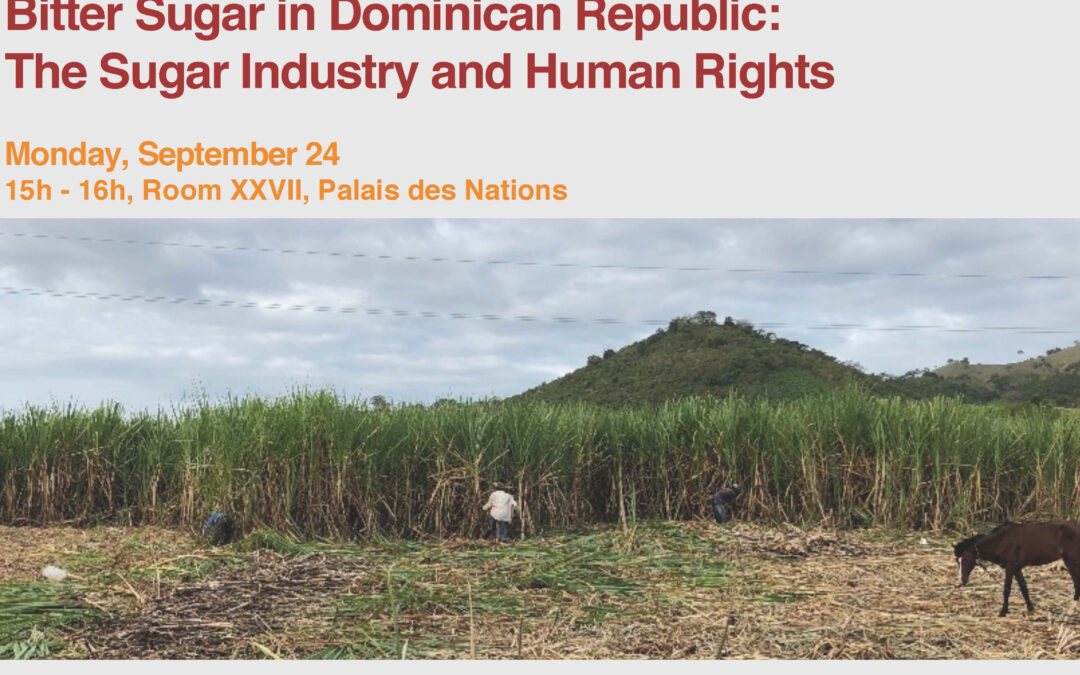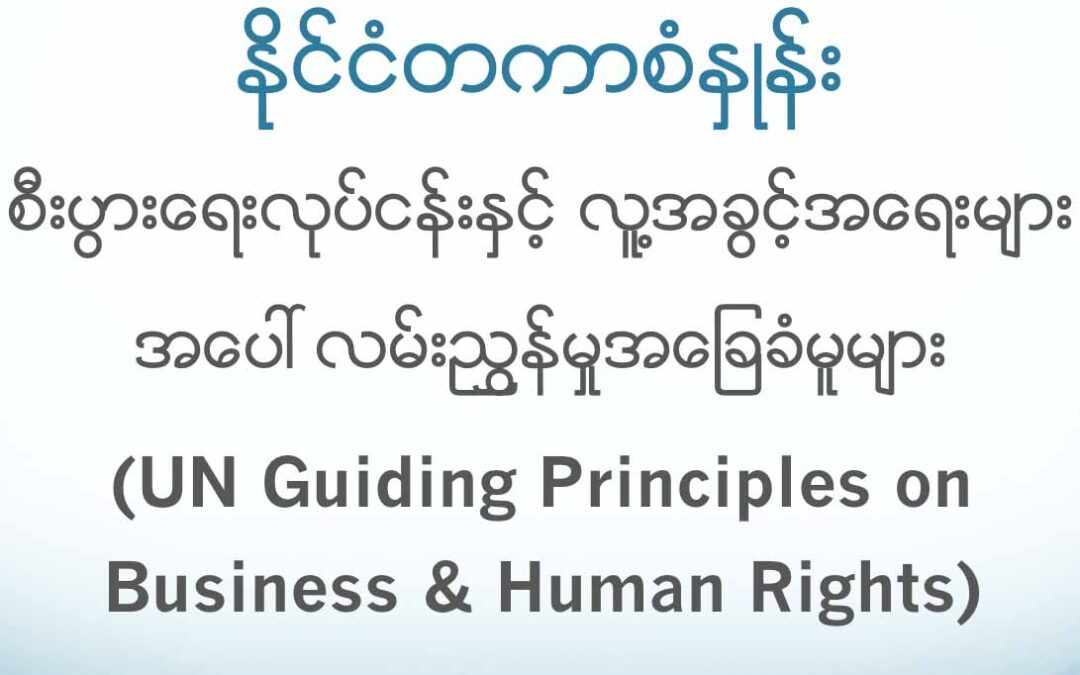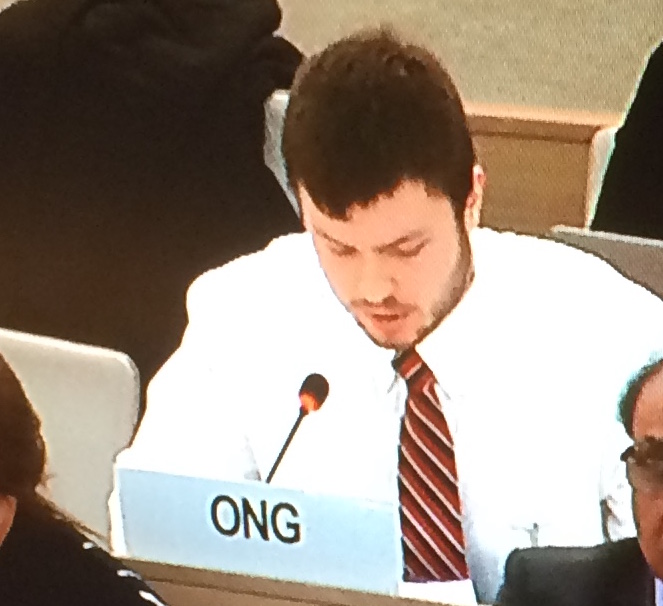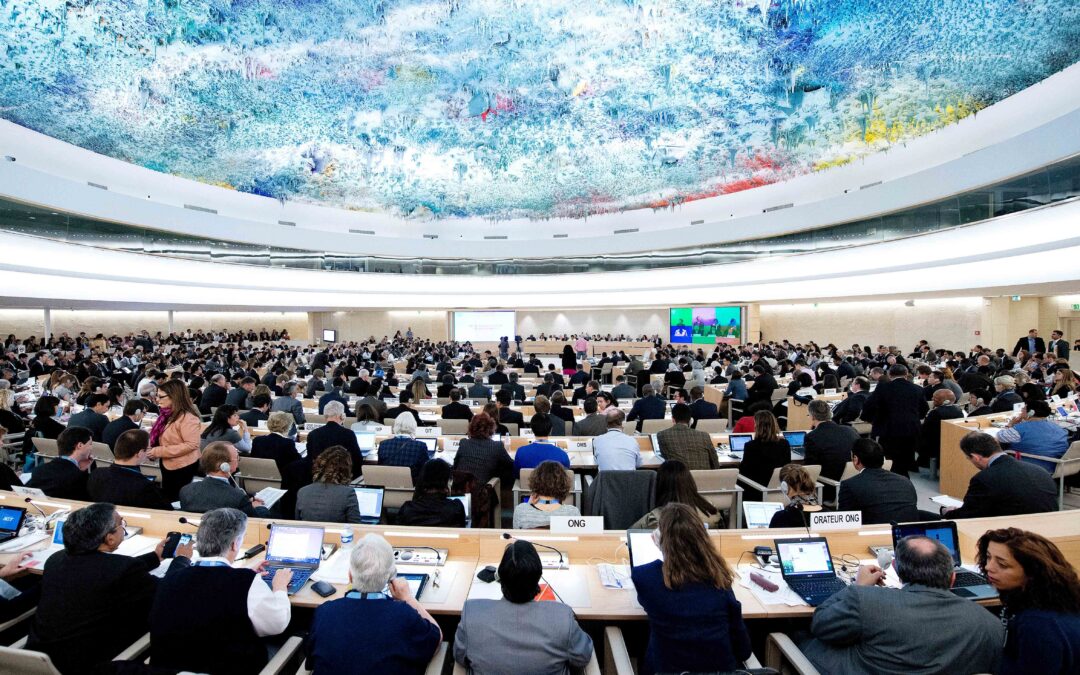
Jun 1, 2019 | Advocacy
In July 2018, it was published the “zero draft” of a proposed first universal treaty addressing business and human rights. The document was authored by Ecuador’s Ambassador in Geneva acting as chair of the Intergovernmental Working Group (IGWG) in charge of drafting the instrument.
The draft is strongly focused on issues of legal accountability of business enterprises and access to justice and remedy for those who allege harm by a business enterprise. The draft was presented and discussed in “first reading” by States and observers during the fourth session of the IGWG in October 2018.
In this document, the ICJ presents its comments to the zero draft. This commentary is not intended as a comprehensive assessment of the draft, but it rather addresses select provisions of priority concern to the ICJ on first reading. It contains recommendations on the way to strengthen them in accordance with human rights and rule of law principles.
Universal-Comments Draft Treaty BHR-Advocacy-2019-ENG (full text, in PDF)

Sep 19, 2018 | Events, News
The ICJ will host the side event, “Bitter Sugar in Dominican Republic: The Sugar Industry and Human Rights” on Monday, 24 September 2018 from 15:00-16:00, Room XXVII, at the Palais de Nations in Geneva.
Together with tourism, sugar production is one of the major industries and one of the biggest sources of employment in the Dominican Republic.
This small Caribbean State remains one of the world’s top sugar suppliers to the USA.
While sugar production and export in the Dominican Republic is a major source of income for the country, the adverse impacts of its production are various.
Destruction of the environment, reduced access to land for local communities, forced evictions and precarious working conditions in sugarcane plantations are unfortunately a reality in many regions of this Caribbean State.
Whilst the Dominican Republic has shown in past years a preparedness to abide by and implement international standards on matters related to business and human rights, the country continues to face many challenges and evidence of human rights violations on the ground still portrays a complicated reality.
Two recent examples involving the sugar cane industry illustrate ongoing concern about human rights abuses in the Dominican Republic.
In 2016, armed agents of one of the largest sugar producers in the country, Central Romana Corporation, forcibly evicted from their homes more than 60 families during the night.
No alternative accommodation or reparations have been provided to the victims to redress the destruction of their homes and the trauma caused by the violence of the evictions.
In 2017, the Vicini Group, the second main sugar producing company in the country, used the pesticide Glyphosate in such a way that many were in danger of death and that it destroyed the crops of peasant farmers and workers.
To date, the human rights violations in both cases continue to be unpunished.
There is a growing international concern that the sugar cane industry in the Dominican Republic is somehow able to act with impunity when it comes to human rights violations.
Bearing in mind the upcoming Universal Periodic Review of Dominican Republic, in which all UN Member States will examine the human rights situation in the country, this side event is aimed at informing and shedding light on this little known reality in the Dominican Republic as well as to brief State delegations about the importance of addressing this issue in their review of the Dominican Republic.
The event will also provide a space for constructive dialogue among various actors, including the Government of the Dominican Republic.
Panelists:
– Carlos Lopez, Senior Legal Adviser, International Commission of Jurists
– Fr. Damián Calvo Martin OP, Director, Centro de Teología Santo Domingo de Guzman
– María Magdalena Álvarez Gálvez, victim of forced evictions by Central Romana Corp.
Moderator: Rory Gogarty, High Court of England and Wales
Interpretation: Will be provided from English to Spanish and Spanish to English
Dominican Republic Sugar Industry Side Event Flyer 24 Sept. (flyer of the event in pdf)

Jul 4, 2018 | News
The ICJ held a workshop in Mawlamyine on 3 July attended by religious leaders and youth activists from southern Mon State in Myanmar’s southeast.
The workshop aimed to facilitate discussion on strategic litigation options for communities adversely affected by existing and proposed investment projects.
The ICJ and civil society organizations have extensively documented how human rights abuses continue to occur in the context of business activities in Myanmar.
Communities generally have limited understanding of their rights, while government actors and businesses regularly flout their legal obligations.
The ICJ’s international legal adviser Sean Bain first set out applicable international standards, with a focus on the UN Guiding Principles on Business and Human Rights.
He identified Myanmar’s nascent legal framework for environmental protection as a key area of law with potential to deter rights abuses. He noted that while in December 2015 the Government of Myanmar issued the Environmental Impact Assessment Procedure, its provisions are rarely followed or enforced in practice.
Workshop participants, from two different areas of Mon State, shared experiences of community mobilization and ideas on how to use law to protect human rights.
Presentation on Corporate Social Responsibility
Prior to this workshop, also in Mawlamyine, on 29 June the ICJ’s legal adviser presented on Corporate Social Responsibility (CSR) at invitation of the national assembly of MATA, the Myanmar Alliance for Transparency and Accountability.
Introduced to Myanmar only in recent years, CSR activities are increasingly invoked by foreign and local companies as evidence of responsible investment.
But in reality, many companies doing CSR have been and continue to be involved in unlawful business activities, sometimes constituting human rights abuses.
Participants from different areas of Myanmar shared stories of businesses using CSR activities in a non-transparent way without accountability.
Cases were described where CSR has allegedly been associated with corruption, undermining trust and cohesion in communities affected by large investment projects.
The presentation from ICJ pointed out that while CSR activities are voluntary and without a specific legal framework, all businesses are subject to national law and should respect human rights in accordance with international law and standards, including the UN Guiding Principles.
Lawful conduct that respects human rights lies at the core of any responsible business, and CSR activities do not change these obligations.
These activities in Mon State are part of the ICJ’s ongoing support to civil society actors in Myanmar, from community-level up to national level actors.

Mar 9, 2018 | Advocacy, Non-legal submissions
The ICJ today delivered an oral statement to the UN Human Rights Council, highlighting the need for substantive discussions towards a treaty on business and human rights to be transparent, broad-based with clear timelines.
The statement, which was made during the General Debate on item 3 with the Human Rights Council, read as follows:
Mr President,
Regarding the “Report on the third session of the open-ended intergovernmental working group on transnational corporations and other business enterprises with respect to human rights” (A/HRC/37/67), the ICJ notes with satisfaction the holding of the third session and congratulates the participants, especially the wide participation of civil society groups. The ICJ calls on States from all regions to engage meaningfully in the important work of the OEWG.
The discussions during the third session confirm the need for an international treaty in the area of business and human rights to fill the existing normative and legal protection gaps. Recent years have seen little improvement in this area despite the growing State and business discourse about policies and commitments. Harassment and attacks on human rights defenders that work in the area of corporate accountability have increased and the difficulties for victims of abuse to have access to an effective judicial remedy persist, especially at the transnational level.
The ICJ calls for a transparent and broad-based consultation process with clear timelines to move in the direction of a draft treaty on the basis of the document “Elements for a treaty” presented by the Chairperson –Rapporteur. The ICJ calls on all States and stakeholders to engage responsibly in this process to enable the fourth session of the Working Group to focus on substantive negotiations overcoming divisions on procedure and politics.
Thank you.

Jun 9, 2017 | Advocacy, Non-legal submissions
The ICJ today delivered an oral statement at the UN Human Rights Council, addressing global responses to corporate impunity, and addresing the role of judges and lawyers in relation to refugees and migrants.
The statement came in a clustered interactive dialogue with the UN Working Group on Business and Human Rights and the Special Rapporteur on the Human Rights of Migrants. These independent experts appointed by the Council were presenting their respective annual reports to the Council.
The ICJ stated as follows:
The ICJ welcomes the Study of the Working Group on Business and Human Rights, on cross-border cooperation between States with respect to law enforcement in relevant cases (A/HRC/35/33). The ICJ concurs with the Working Group’s concern for the “lack of political will by States to address business-related human rights abuses through the lens of criminal law” (para. 4) and the near-total lack of investigations and prosecutions against companies regarding human rights abuses and international crimes (para. 87).
The ICJ also concurs that a global approach is needed to address corporate impunity and supports the Working Group’s recommendations for adoption of legal frameworks imposing liability on legal entities (para. 93), creation of specialized investigative and prosecutorial units in cross-border human rights cases, and joint investigations. The ICJ would like to ask how the Working Group will support States to put these recommendations into practice?
The ICJ also welcomes the proposal of the Special Rapporteur on the Human Rights of Migrants for a 2035 agenda for facilitating human mobility. We particularly support the goal of effective access to justice for all migrants, and the targets and indicators on access to lawyers and courts for this goal, and in relation to returns and detention.
The ICJ has published a set of Principles on the Role of Judges and Lawyers in Relation to Refugees and Migrants, developed in consultation with leading practitioners and experts from around the world. We encourage States and other actors to take account of the detailed guidance in the ICJ Principles, including during the process for adoption of the Global Compacts foreseen by the New York Declaration for Refugees and Migrants, and in considering the Special Rapporteur’s proposal. We would like to ask the Special Rapporteur how States can better recognise and enable the role of judges and lawyers in relation to migrants?
The Chair of the Working Group on Business and Human Rights, in his concluding remarks, recognised the statement of the ICJ, and answered that the Working Group plans to follow up its report with a continuing conversation about its recommendations, and will reach out to stakeholders for further consultation on what more the WG can do in this regard.
The Special Rapporteur on Human Rights of Migrants also recognised the statement of the ICJ, and in his reponse emphasised that access to justice for migrants is key, including competent well-resourced lawyers, access to meaningful recourse, better funding for National Human Rights Institutions and ombudspersons, and providing in administrative law procedural safeguards that are commensurate to the risks that migrants face when such decisions are applied to them.









